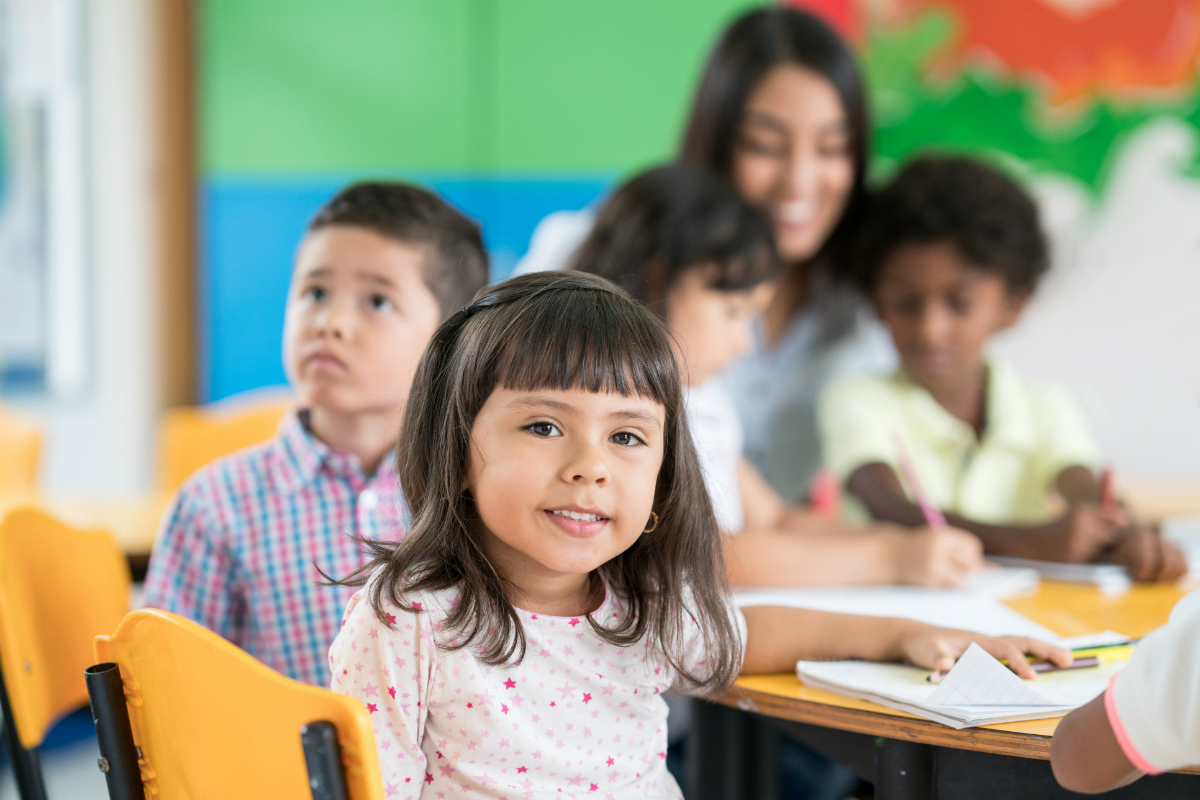As California continues to expand access to transitional kindergarten (TK), new research from the Public Policy Institute of California finds benefits and potential pitfalls should burgeoning trends go unaddressed.
For instance, TK leads to earlier identification of multilingual students in need of English language support — as well as quicker reclassification of English learner (EL) students — in early grades. However, authors of the study, Assessing Transitional Kindergarten’s Impact on Elementary School Trajectories, also noted the possibility that TK students are overidentified as ELs.
“We find that students who enroll in TK are 10 percentage points more likely to ever be identified as ELs,” researchers wrote. “Overall, TK students are classified as ELs for about 40 percent of an academic year longer than their non-TK counterparts. Similarly, when we look at reclassification, we see positive impacts in kindergarten and grade 1, and no difference due to TK in later grades. While kindergarten reclassification is relatively rare, it has been increasing statewide since the inception of the TK program, with the exception of the school years most impacted by COVID.”
Such results suggest more students are identified for EL services because of TK, but that they do not receive those services for long and see quick reclassification out of EL status in kindergarten and first grade, the study concluded.
Other key findings
Findings were based on outcomes from nearly 90,000 students who attended TK in five large districts across the state.
TK participation also leads to earlier identification of special education needs, particularly for autism and speech/language impairments, which are identified for TK students roughly half a grade earlier than for students who do not enroll in TK. “To the extent that earlier identification is used to provide additional years of services that benefit students with disabilities, this is a promising effect of the TK program,” researchers wrote.
Researchers also found evidence suggesting positive development of social-emotional learning outcomes including self-management, social awareness and self-efficacy, but only for students who only speak English.
“We found suggestive evidence of TK’s positive effects on SEL skills among students in grades 3 to 6,” researchers found. “These findings are somewhat promising, but when we examine outcomes separately for English-only and multilingual students, TK appears to have a large positive impact on the former group, and a small or even slightly negative impact on the latter group.”
Finally, TK does not appear to improve grade 3 and 4 test scores more than other pre-K options. This is consistent with past studies on pre-K programs that have found any additional academic improvement often fades in elementary school — even among programs that show notable long-term improvements in high school and beyond.
Recommendations
As of the 2022–23 school year, about 42 percent of 4-year-olds were eligible to enroll in California’s TK program. By the 2025–26 school year, all 4-year-olds will be eligible. To best support these students, researchers offered several policy considerations and recommendations, including:
- As TK expands, state and district policymakers should determine how to best serve dual-language learners to fully maximize the potential of TK, especially in the current absence of social-emotional learning benefits for multilingual students. A more supportive language environment would be beneficial for these students, according to the report.
- Earlier special education identification shows promise for improving services and outcomes. If services can be provided and tailored to younger children, TK may provide an opportunity to improve outcomes through earlier intervention.





